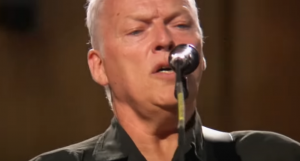Top 10 Classic Rock Basslines

Rev up and roll the track ‘cause it’s all about the bass!
The bass line is the back bone of a song, it is the foundation that any melody hangs upon. Although bass lines do not seem to stand out right away, its role in supporting harmonies is very crucial. Bass lines may also seem simple in sound butit actually also helps define a song’s key. It emphasizes the chord tones of the other instruments involved in a track. In rock music, bass lines work along with the drums and create the rhythm section of a song. Bass lines create the rhythmic pulse of a song, which is responsible for the foot tapping, head bobbing to head banging phenomenon done by the listener. Bass line riffs may not always be star of a track, but it’s very noticeable when it disappears. Bass lines might just be the secret ingredient to iconic rock songs not many people really know about.
-
“Wrathchild” by Iron Maiden (1981)
“Wrathchild” is a song off of Iron Maiden’s sophomore album Killers released in 1981. The song revolves around the story of an angry young man in search for his true father, with an agenda that as assumed to be sinister and violent. Aside from the daunting lyrics, it is the bass line by songwriter Steve Harris that is most recognizable from the song. The bass line features a galloping rhythm that adds a funk element to a classic heavy metal rock song.”Wrathchild” is also the only regularly played track from Killers that is regularly performed in almost all of Iron Maiden’s concert tours. Harris also plays this iconic song during his solo shows along with the with the band British Lion. With all the success “Wrathchild” has achieved, it’s undeniable that it’s the badass bass line that took this song to the top.
https://www.youtube.com/watch?v=5eVZ9OnKR4c
-
“The Chain” by Fleetwood Mac (1977)
“The Chain” is the only song from Fleetwood Mac’s iconic album Rumours that is credited to each and every member of the band. The reason for this credit comes from the fact that “The Chain” was created from the separate songs and riffs each member contributed, combined. The song was assembled manually by literally splicing the tapes and putting them together. Metaphorically, the song also refers to the Fleetwood Mac’s effort to keep every link to stay together as a band, as described by Mick Fleetwood himself. Bassist John McVie composed the famous bassline and the bass progression of the song and it has since become one of rock music’s most recognizable basslines ever even if it wasn’t played in the intro and comes in at the 3-minute mark of the song. This famed bassline has been used in many shows and films such as the theme music for the Grand Prix on BBC and most recently, in Marvel Studios’ box office blockbuster, Guardians of the Galaxy Vol. 2.
8. “Orion” by Metallica (1986)
This Metallica classic is a special track that is well-loved by metal rock bass players and fans alike as it showcases the unrivaled talent of Metallica’s late bassist Cliff Burton. “Orion” is an instrumental track by the legendary rock band that was named after the constellation Orion because of the song’s bridge having a space-like vibe. The song begins with the drum and bass interplay and definitely highlights Burton’s intense and melodic playing style. His bass solos are more somber yet riveting. Recently, an isolated bass part from this track was released and it only established the high-level skills Burton certainly possessed in playing on the track, showcasing techniques like upper-register soloing and tapping which continues to influence modern rock bassists today. On this track, Burton’s bass solos are so melodically intricate that it becomes commonly as guitar solos. Such a shame that Burton’s tenure on the band was only short-lived, ending in a tragic accident. “Orion” was Burton’s masterpiece and it continues to live on with his memory.
7. “My Generation” by The Who (1965)
Another rock bass pioneer, The Who’s legendary bassist John Entwistle innovated some of the greatest bass tapping techniques that is still being used today. He was one of the first bassists to feature bass solos and leads in songs such as their 1965 hit “My Generation”. His insane tapping techniques on the track involved using all four fingers at the same time to emulate the sound of chords with the bass.
Entwistle’s bassline for “My Generation” cemented the importance of his instrument to the entirety of the band’s sound. The song is punctuated by Entwistle’s bass solos, highlighted even further when the rest of the band drops out. The dynamic between Pete Townshend’s guitar riffs and Entwistle’s bass solos establishes the virtuosic essence of the song’s instrumentation. Entwistle’s bassline solo on this track is one of the first bass solos ever in rock music history.
6. “Give It Away” by The Red Hot Chili Peppers (1991)
Nobody else embodies the definition of “rock star bassist” other than Red Hot Chili Peppers’ hyperactive bass player Flea. On the track “Give It Away” from the band’s 1991 multi-platinum album Blood Sugar Sex Magik, Flea showcases a more laidback persona with his slinkier, funkier bassline that really puts the whole song together. It’s a contrast to Flea’s usual aggressive attack on the bass. The song was written during the jam sessions of Flea’s and John Fruciante’s side project, H.A.T.E.
Lead singer Anthony Kiedis said, “I was so struck by Flea’s bass part, which covered the whole length of the instrument’s neck, that I jumped up and marched over to the mic, my notebook in tow.” Kiedis then started chanting the phrase he had wanted to incorporate into another song, “give it away, give it away, give it away now” but deemed it more fit with Flea’s bassline for this song.
“Give It Away” went on to gain the number one spot on the Billboard rock charts and became the band’s first ever number one single.
5. “Dazed and Confused” by Led Zeppelin (1969)
This ultimate Zep classic is anchored by the amazing bass line of the great John Paul Jones. His heavy chromatic bass riff opens the song and keeps the whole thing together all throughout. Jones’ walking bass line greatly compliments the guitar solo and the paranoid lyrics, making this record the first spine-tingling psychedelic blues rock track for the band. Jones lays down a simple minor –key riff and really gets into the groove of his insane bass licks around the three-and-a-half-minute mark. This song cemented the unrivaled talent of Jones as a bassist, and as he will later be known as, an immensely talented multi-instrumentalist as well playing a variety of musical instruments such as the organ, koto, lap steel guitar, autoharp, violin, cello, sitar, ukulele, and of course, who could forget his recorder intro in “Stairway to Heaven”.
4. “YYZ” by Rush (1981)
The beloved Canadian progressive rock trio has a career that spans more than forty years and has cemented their status as master musicians who are experts at their own instruments. This undeniable musical talent is widely showcased in their instrumental track “YYZ” fromtheir 1981 album Moving Pictures. On this instrumental, we hear Alex Lifeson’s amazing guitar movements, Neil Peart’s explosive drum playing, and most notably, lead singer Geddy Lee’s highly impressive work on the bass while simultaneously doing synth as well! Lee’s brief bass solos prove the high level of technicality he has on top of his natural musical abilities. He matches Neil Peart’s out-of-this world drumming on this track that just makes the entire instrumental a classic example of great musicianship. Also worthy of note, The intro to the song is Morse code for “YYZ”, the IATA airport identification code of Toronto Pearson International Airport, where Rush hails from . In Morse Code “YYZ” is written:
“-.– -.– –..”
3. “Come Together” by The Beatles (1969)
Probably one of the most recognizable bass line intros in the history of music ever, The Beatles’ “Come Together” is a masterpiece that features Paul McCartney’s creative genius on the bass. Macca was not the flashiest bassist there is but his creative technique never wavered throughout his career. The peak of his bass playing certainly was on the Abbey Road album recording, displaying his cool advanced melodic riffs on tracks such as “Come Together”. Though the song is not the most complex McCartney has ever played, it’s definitely one of the most memorable ones. His unique bass line composition on “Come Together” combined with John Lennon’s guitar work, is perfectly complementary of each other, keeping the track harmonic and eccentric at the same time. McCartney managed to make a bass line the star of the song, establishing the distinguishable hook right at the very beginning.
https://www.youtube.com/watch?v=_HONxwhwmgU
2. “Money” by Pink Floyd (1973)
“Money” is a song written by Pink Floyd’s bassist Roger Waters from their 1973 iconic album The Dark Side of the Moon about the consequences that money brings. It’s also the song that sold over 34 million copies worldwide, meaning it ironically brought the band…money. Aside from the irony, this single has quite complex time signature that fluctuates in between parts of the song. Another unusual fact is the trading of the “chorus” in favor of a catchy bass line hook. Waters came up with the signature bass line as well as the eccentric time signature switches. Guitarist David Gilmour says of the creation of the song,
“It’s Roger’s riff. Roger came in with the verses and lyrics for ‘Money’ more or less completed. And we just made up middle sections, guitar solos and all that stuff. We also invented some new riffs – we created a 4/4 progression for the guitar solo and made the poor saxophone player play in 7/4.”
Even with a complicated musicality behind the track, it’s hard to not be hooked by the funky bass line of this Pink Floyd classic.
1.“Another One Bites the Dust” by Queen (1980)
Perhaps the most memorable of all bass lines in rock music, Queen’s ultimate classic hit “Another One Bites the Dust” is the best of their many singles in which the bass line competes for the spotlight with the ever so enigmatic Freddie Mercury. The immensely catchy bass hook intro played by bassist John Deacon fuses rock n’ roll with a little bit of disco and funk. The entire track is certainly bass-driven. Deacon’s inspiration for the popular bass line really had a bit of disco groove to it and that was the song “Good Times” by disco band Chic. The song is as much of an icon as the band itself. The song was ranked at number 34 on Billboard’s All-Time Top Songs but its Deacon’s bass line that’s actually more worthy of note as the rhythm was used by the British Heart Foundation to train medical professions of the correct number of chest compressions per minute when performing CPR. Deacon’s bass line for the song has the same number of beats per minute as the required number of compressions needed for CPR. How cool is that!











